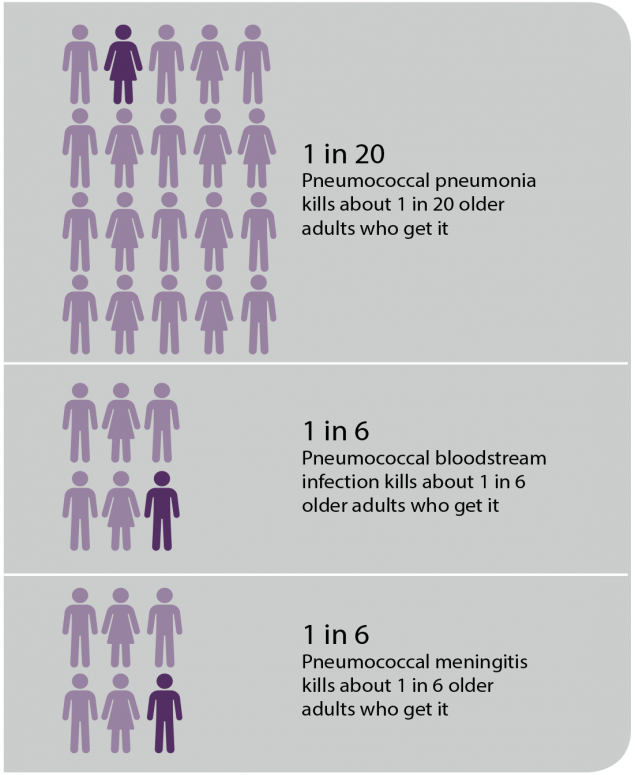There are more than 90 different strains of Streptococcus pneumoniae S. Pneumococcal diseases are bacterial infections that can affect the lungs and other parts of the body.
 Streptococcus Pneumonia Pneumococcus
Streptococcus Pneumonia Pneumococcus
The infection may cause pneumonia or an ear infection.

What is pneumococcal. About pneumococcal infections. The vaccine is injected into the body to stimulate the normal immune system to produce antibodies that are directed against. Invasive disease is usually very serious and can sometimes result in death.
Routine vaccination in infants and children. Pneumococcal pneumonia kills about 1 in 20 who get it. Who should have the pneumococcal.
The pneumococcal vaccine Prevnar is mainly given to prevent meningitis. Pneumococcal disease is a common infection which is mostly mild but it can also lead to serious health problems. Prior lung infections also makes someone more likely to develop pneumococcal pneumonia.
It can cause severe invasive disease including meningitis pneumonia and bacteraemia and non-invasive disease including otitis media. Pneumococcal disease refers to a range of illnesses that affect various parts of the body and are caused by infection with the bacterium Streptococcus pneumoniae commonly known as pneumococcus. Pneumococcal pneumonia is a disease that has a high rate of hospital transmission putting hospital patients at greater risk.
Pneumococcal disease is spread from person to person through coughing and sneezing. Vaccines that help protect against pneumococcal disease work well but cannot prevent all cases. Pneumoniae which is also known as pneumococcus.
Some pneumococcal infections are invasive Invasive disease means that germs invade parts of the body that are normally free from germs. Some people get the germs that cause pneumococcal disease but dont get sick these people are called carriers But others may get ear infections and sinus infections. Pneumoniae bacteria known as serotypes some of which cause more serious infection than others.
Pneumococcal disease is caused by the bacterium Streptococcus pneumoniae. Pneumococcal vaccine is recommended for. There are more than 80 different types of pneumococcus bacteria -- 23 of them covered by the vaccine.
Pneumococcal vaccination is a method of preventing a specific type of lung infection that is caused by the pneumococcus Streptococcus pneumoniae bacterium. Pneumococcal disease is caused by a type of bacteria. Pneumococcal infections are caused by the Streptococcus pneumoniae bacteria and range from mild to severe.
The vaccine comes in 2 forms called pneumococcal conjugate vaccine PCV and pneumococcal polysaccharide vaccine PPSV. These include infection with the middle ear an infection with the blood pneumonia or bacterial meningitis. At their worst they can cause permanent brain damage or even kill.
And sometimes pneumococcal disease can lead to serious infections like pneumonia meningitis bacteremia and sepsis. Sometimes they can be serious but. Pneumococcal infections are caused by the bacterium Streptococcus pneumoniae and can lead to pneumonia blood poisoning sepsis and meningitis.
The disease can be most severe in patients who have had their spleen removed. Pneumococcal disease is an infection caused by pneumococcal bacteria. The pneumococcal disease causes the bacterium Streptococcus pneumoniae S.
Non-Indigenous adults aged 70 years. Inflammation of the sac surrounding the heart pericarditis Blockage of the airway that allows air into the lungs endobronchial obstruction with collapse within the lungs atelectasis and collection of pus abscess in the lungs.


